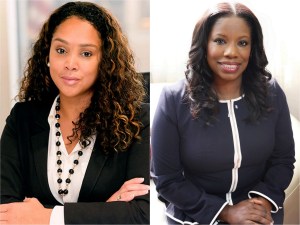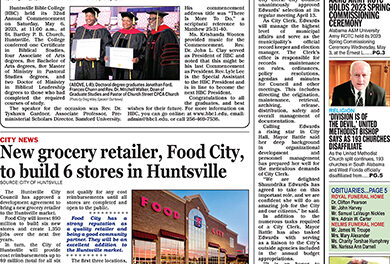By Kiara Dunlap
For The Birmingham Times
Often depicted as frayed ties between the Black and Jewish communities as seen in some areas of today’s media and important question is raised: How do we bridge the gap between the two groups?
This question framed the discussion as African Americans and Jewish Americans came together for an impactful dialogue at the University of Alabama at Birmingham earlier this year under the theme, “Shared Histories: A Conversation about Black-Jewish Relations in Birmingham and Beyond.”
Hosted by the UAB Office of Diversity, Equity and Inclusion and the UAB Institute for Human Rights, the program was moderated by Tina Kemp Reuter, director of the institute and director of UAB Social Science and Justice Research.
Panelists included Barry McNealy, Professor of African American Studies at UAB; Margaret Norman, Director of Programming and Engagement at Temple Beth-El; Joyce Shevin, Director of Community Relations for the Birmingham Jewish Federation, and Dr. Jonathan Wiesen, a Professor of History at UAB. They were from different backgrounds and different walks of life but shared a passion for unity and harmony between the two communities.
Asked about important moments in history that have made this conversation relevant for today, Wiesen mentioned the 2015 Dylan Roof shooting at the Emanuel AME church in South Carolina and the 2018 Robert Bowers shooting at the Tree of Life Synagogue in Pittsburgh. These two tragedies against these communities were committed by Anti-Black and antisemitic extremists.
Wiesen said “it’s easy to see Blacks and Jews together as victims, sort of like frightened minorities.” For him, “they just remind me… of how much the fates of American Blacks and Jews have been intertwined, and how we have to stand together against racism and antisemitism both individually and sometimes together.”
In Birmingham, there is a shared history of discrimination.
“This city’s history goes back far with the idea of white supremacy. White supremacy was not just something that was a detrimental force to African Americans, it was a detrimental force to the Jewish community in the United States as well,” said McNealy. “When we look at these two communities and we look at the shared nature of white supremacy, it goes hand in hand with antisemitism.”
In Birmingham, both communities were targeted by bombings and attempted bombings during the Civil Rights era. In the 1950s and 1960s, Black communities were attacked multiple times.
In 1958, 54 sticks of dynamite were discovered at Temple Beth-El. The explosives were found before they detonated. There were prominent members of the congregation who were supporters of the Civil Rights movement.
“Many Jews began empathizing more with the local Black community, thinking about what they could do to help. This was a turning point for some people who had not previously been active in issues of human rights. Those who already had ties saw the interconnection of what these two communities faced and thus became more inspired to act,” said Temple Beth-El’s Norman.
The panel also reflected on the current state of relations between the two communities in Birmingham.
Shevin described the work of the Birmingham Jewish Community Relations Council, whose purpose is to “build bridges of understanding to our broader communities, combat antisemitism and advocate for public policy and social justice issues.”
She referred to a quote: “We will never be together until we are in each other’s homes and at each other’s tables.” Shevin talked about her involvement in a dialogue group that brings Black and Jewish women together to build friendships, but also to have “hard conversations.”
Shevin believes that a controversy several years ago involving the Birmingham Civil Rights Institute honoring Angela Davis created challenges. This episode created friction and distrust between the two communities.
One consistent theme throughout the discussion was the need to have honest conversations, especially if the two communities want to have good ties. “We learn in uncomfortableness… To get to a perfect union we have to get uncomfortable,” said McNealy.
Kiara Dunlap is interning jointly for Southern Jewish Life and The Birmingham Times in partnership with Miles College, where she is a senior communications major.











